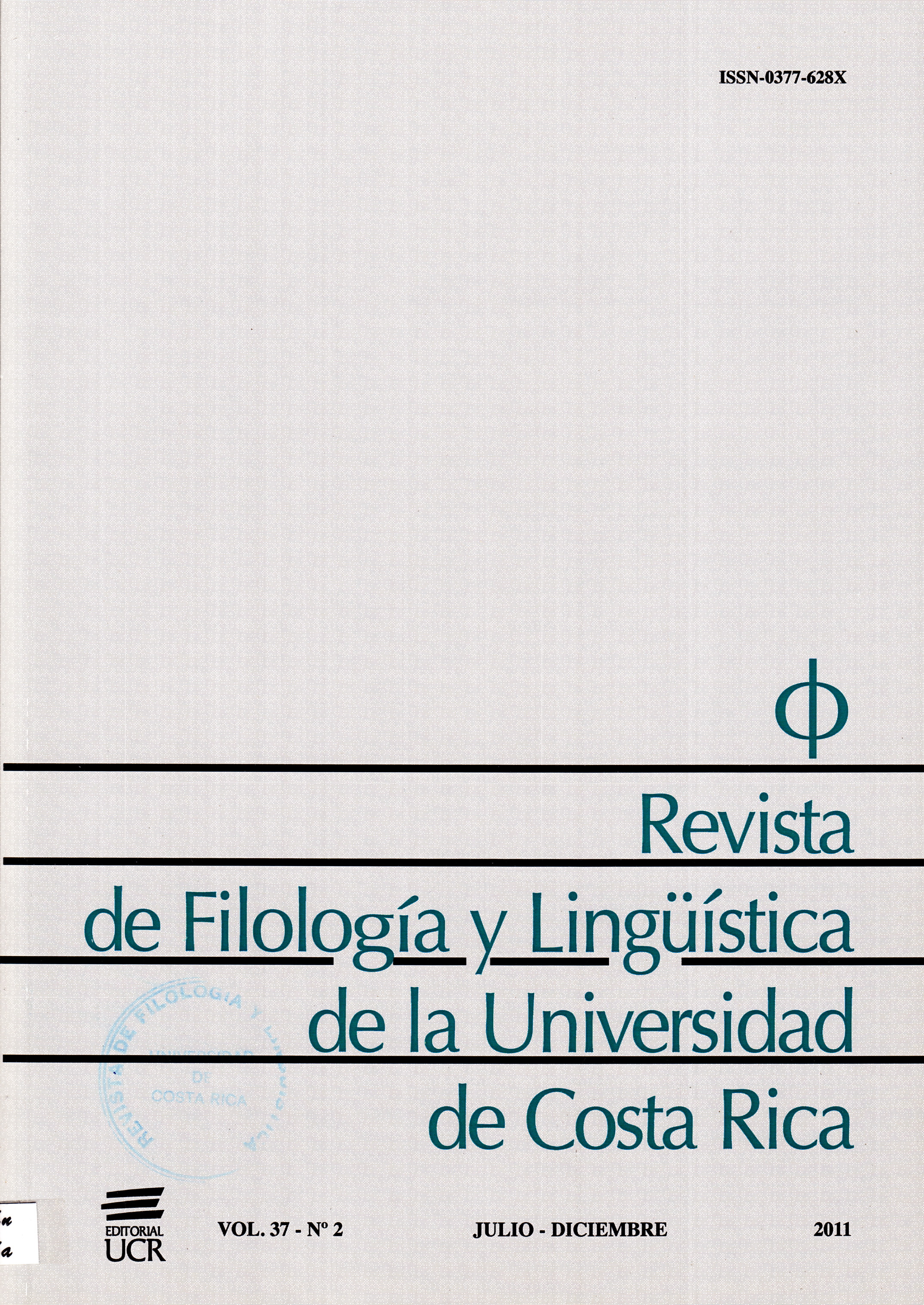Abstract
Despite being referred to in passing at almost every mention of Mexican Onda literature from the 1960s, the work of Parménides García Saldaña (1944-1982) has garnered scarce critical attention. His work, as is the case with other writers of the Onda literary movement, is notable as being one of the first to be deeply influenced by the effects of globalization; particularly by rock music and culture, and more specifically, the Rolling Stones. Though he has several literary models from which he draws loosely, notably Arthur Rimbaud and the Beat Generation (most specifically William S. Burroughs’ Naked Lunch (1959)), the overarching influence in his only novel, Pasto verde is undoubtedly the Rolling Stones. The references to the group, specific songs of theirs, and their iconoclastic way of being serve not only evoke the era in which the novel takes place, but also serve as key semantic elements within the experimental text. The use of the Rolling Stones song, “Satisfaction” in the text serves as a guide to understanding the narrator’s psyche and view of the subjective world he is textually constructing. The narrator, who shares many similarities with García Saldaña himself, can be read as a textual construction of the author himself and his view of his own chaotic reality: replete with the hopes, projections, and disappointments experienced by the García Saldaña in the era.References
Agustín, José. 1996. La contracultura en México. México: Grijalbo.
Bovey, Seth. 2006. “Don’t Tread on Me”: The Ethos of '60s Garage Punk”. Popular Music and Society. 29 (4): 451-459.
Bruce-Novoa, Juan. 1986. “La Onda as Parody and Satire”. En: Carter y Schmidt (Eds.), 37-55.
Carballo, Emmanuel. 1990. Notas de un francotirador. Tabasco: Gobierno del Estado de Tabasco.
Carter, June y Donald L. Schmidt (Eds). 1986. José Agustín: Onda and Beyond. Columbia, MO. : University of Missouri P.
Dalton, David. 1981. The Rolling Stones: The First Twenty Years. New York: Alfred A. Knopf.
Frith, Simon. 2007. Taking Popular Music Seriously: Selected Essays. Burlington, VT: Ashgate.
Finding, Deborah. 2009. “Why Do We Tolerate Misogyny in Music?” http://www.alternet.org/reproductivejustice/134440/why_do_we_tolerate_misogyny_in_music. Consulta: 18 de octubre de 2011.
Fuentes, Carlos. 1969. La nueva novela hispanoamericana. México: Editorial Joaquín Mortiz.
García Saldaña, Parménides. 1970. El rey criollo. México: Diogenes.
(1974). En la ruta de la onda. México: Diogenes.
(1975). Pasto Verde. México: Diogenes.
Glantz, Margo. 1969. Onda y escritura en México: Jóvenes de 20 a 33. México: Siglo XXI.
Gracyk, Theodore. 2001. I Wanna Be Me: Rock Music and the Politics of Identity. Philadelphia: Temple U P.
Gunia, Inke. 1994. ¿“Cuál es la onda”? La literatura de la contracultura juvenil en el México de los años sesenta y setenta. Frankfurt am Main: Vervuert Verlag.
Herrero-Senes, Juan. 2009. El nihilismo: Disolución y proliferación en la tardomodernidad. Barcelona: Montesinos.
Miller, Jim (Ed.). 1976. The Rolling Stone Illustrated History of Rock and Roll. New York: Random House.
O’Keefe, Tim. 2005. “Epicurus”. The Internet Encyclopedia of Philosophy http://www.iep.utm.edu/epicur/. Consulta: 16 de octubre de 2011.
Pérez, Genaro. 2001. “Juan García Ponce y Parménides García Saldaña en el contexto de la Onda”. Revista de literatura mexicana 7 (14): 67-72.
Poniatowska, Elena. 1985. ¡Ay vida, no me mereces! México: Joaquín Mortiz.
Richards, Keith. 1996. Keith Richards: In His Own Words. New York: Omnibus Press.
Tobler, John and Frame, Peter. 1980. Rock’n’roll: The First 25 Years. New York: Exeter.
Wicke, Peter. 1987. Rock Music: Culture, aesthetics and sociology. (Trad. Rachel Fogg). Cambridge: Cambridge U P.
Williams, Raymond L. 1995. The Postmodern Novel in Latin America: Politics, Culture, and the Crisis of Truth. New York: St. Martin’s Press.
Zolov, Eric. 1999. Refried Elvis: The Rise of the Mexican Counterculture. Berkeley: University of California P.

